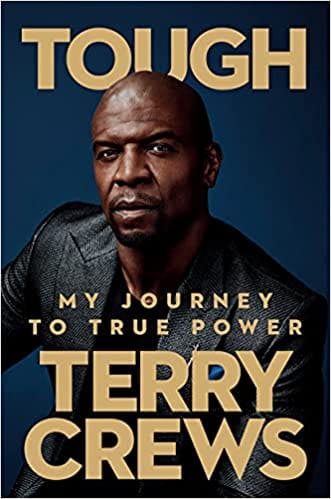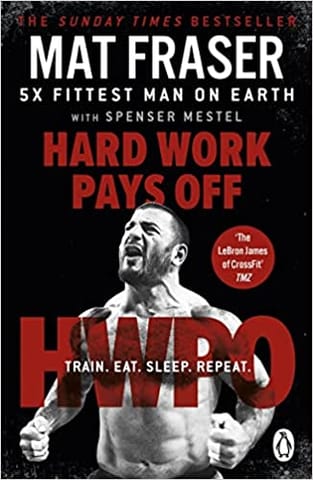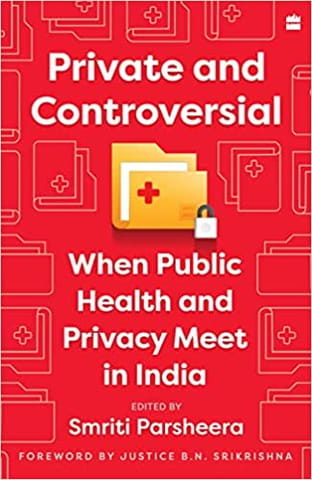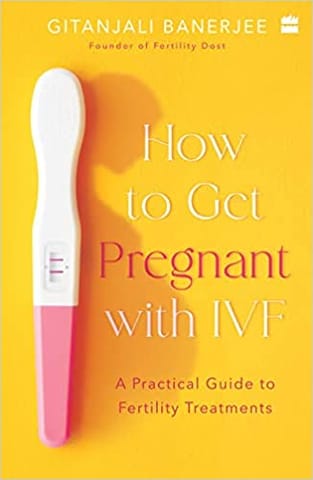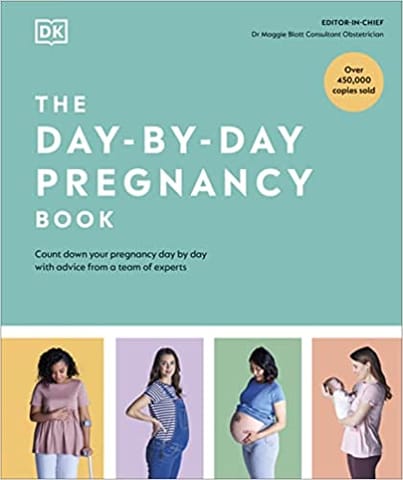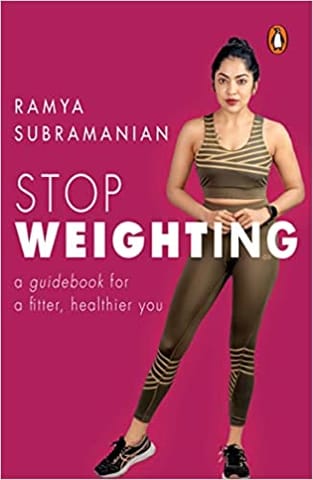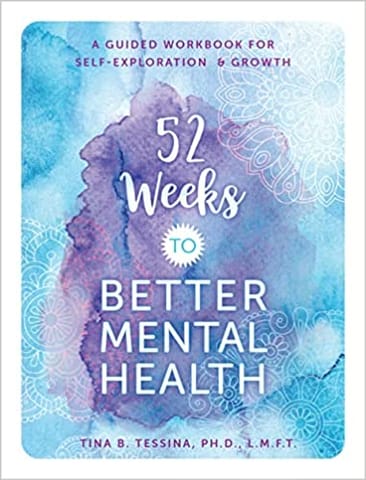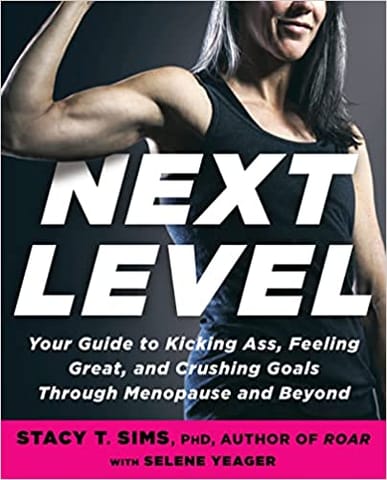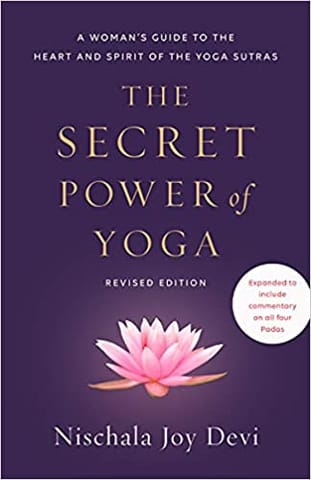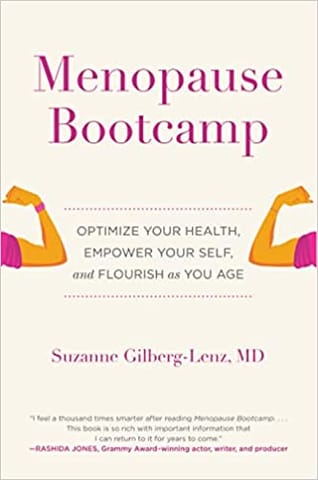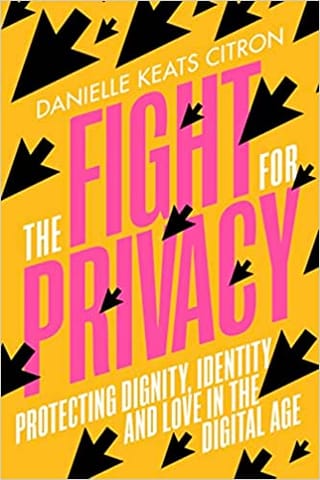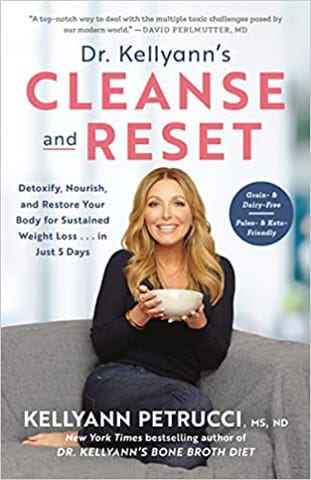- Non-ficton
- Non-ficton
- Contemporary Fiction
- Contemporary Fiction
- Children
- Children
- Comics & Graphic Novels
- Comics & Graphic Novels
- Non-Fiction
- Non-Fiction
- Fiction
- Fiction
Terry Crews spent decades cultivating his bodybuilder physique and bravado. On the outside, he seemed invincible: he escaped his abusive father, went pro in the NFL, and broke into the glamorous world of Hollywood. But his fixation with appearing outwardly tough eventually turned into an exhausting performance in which repressing his emotions let them get the better of him—leading him into addiction and threatening the most important relationships in his life.
Now Crews is sharing the raw, never-before-told story of his quest to find the true meaning of toughness. In Tough, he examines arenas of life where he desperately sought control—masculinity, shame, sex, experiences with racism, and relationships—and recounts the setbacks and victories he faced while uprooting deeply ingrained toxic masculinity and finally confronting his insecurities, painful memories, and limiting beliefs. The result is not only the gripping story of a man's struggle against himself and how he finally got his mind right, but a bold indictment of the cultural norms and taboos that ask men to be outwardly tough while leaving them inwardly weak.
With Tough, Crews's journey of transformation offers a model for anyone who considers themselves a “tough guy” but feels unfulfilled; anyone struggling with procrastination or self-sabotage; and anyone ready to achieve true, lasting self-mastery.
Review
—Adam Grant, #1 New York Times bestselling author of Think Again and host of the TED podcast WorkLife
“From the fields of Flint, Michigan, to the packed arenas of the NFL and Hollywood, Terry Crews’s life is a testament to the power of physical and mental toughness. But there’s a deeper journey at work here that goes beyond one man’s story of overcoming painful challenges and long odds. The roots of Terry’s resiliency run deep and connect him to a history he carries inside.”
—Henry Louis Gates Jr., Alphonse Fletcher University Professor and Director of the Hutchins Center for African & African American Research, Harvard University
“Terry is an extraordinary storyteller. This memoir is powerful, profoundly human, and a behind-the-scenes look at an incredible life.”
—Amanda Nguyen, civil rights activist and Time Woman of the Year 2022
“Terry has battled his way to the top, with heart and at times, with rage . . . but through it all, the man he has become is truly extraordinary. America watch out. Here is your president in waiting.”
—Bear Grylls, global adventurer, TV presenter, and bestselling author of Never Give Up
“I haven’t stopped thinking about his book since I read it. I think it was so brave of [Terry] to share his story. It can’t have been easy to be so honest about some of his hardest moments, but I think it will help a lot of people—especially men.”
—Gayle King in Oprah Daily
About the Author
Excerpt. © Reprinted by permission. All rights reserved.
1
The Gym
I discovered the gym when I was thirteen years old. I had never been big before. I wasn't scrawny, really, just on the skinny side of average, and being bigger had always been an obsession. I used to dream of being powerful and strong like the superheroes in my comic books.
I even had an origin story.
It happened when I was two. Toddling around the living room, I found an extension cord that was plugged into the living room wall to power a nearby lamp. I put one end of the cord in my mouth while it was still attached to the wall socket. It blew up, and I got shocked and my parents looked over to see me with a bloody, smoking lower lip with a hunk of skin hanging grotesquely from my chin. The cord at my feet told them what had happened, and they rushed me to the hospital. In the end, except for the scar I still have on my lower lip to this day, everything turned out okay, and for years I used to ask my parents to tell me the story of what happened, because to me it was like I was the Six Million Dollar Man: They had rebuilt me, made me stronger, made me into a hero with special powers and superhuman strength. When I was in kindergarten, I'd run around our house, lifting the end of the couch to see how high I could get it. One afternoon, I hoisted up the couch and felt a sharp pain in my side. I'd given myself a hernia. I was only five years old.
A week in the hospital for hernia surgery did nothing to deter me. I was obsessed with being bigger-tougher. I loved to draw, and I used to sit at the kitchen table for hours, drawing superheroes and villains with big, bulging muscles. My idol was my uncle Buddy. He had the biggest arms I'd ever seen on a man. He was a giant. Every time I saw him I'd say, "Make a muscle!" and he would. Then I'd jump on it and he'd hold me up with one arm and I would hang on to him, in awe.
Then I found the gym. Berston Field House was down the street from my school, Flint Academy, in Flint, Michigan. The gym was down in the dingy basement. It was primitive compared with what gyms are today, just pig iron, a bench, and one leg machine. But I'd do that all day, back and forth. Leg machine, bench. Leg machine, bench. At home, I would put my feet underneath my bed and do sit-ups until my stomach was so cramped and numb with pain I'd have to curl up in a ball. Then I'd wait until the feeling came back, and I would do more, going and going to the point where it would be difficult to walk.
I was obsessed with Bruce Lee, too. There was an illustrated book of exercises that was rumored to be Bruce Lee's secret, Dynamic Strength by Harry Wong. My brother and I would do anything to learn Bruce Lee's fitness regimen, so we ordered the book from the ads in the backs of martial arts magazines like Black Belt and Inside Kung-Fu. "Dynamic tension" is a practice of working a muscle against itself. You push your hands together, and that works your chest. You sit against a wall and hold the pose as long as you can, and that works the legs. If I couldn't be in the gym, I was doing that, to a manic degree, in the shower, in front of the TV. I'd stand there and flex my legs until the muscles cramped with pain.
This was all before Arnold Schwarzenegger and the Pumping Iron documentary that made him a star. This was a time when exercising every day and bodybuilding were considered strange. Everyone around me thought I was crazy. They used to look at me like, "Why are you doing all this?" I couldn't have articulated an answer at the time, but looking back now, the reason is obvious: I was getting ready to kill my father.
My father and I share the same name. Growing up I was always Little Terry, and he was always Big Terry. He was aptly named. He was a burly, intimidating man with calloused hands the size of bowling balls and a deep voice that filled me with fear. We lived in an old house with creaky floors, and when he walked, every step would reverberate through the walls-BOOM, BOOM, BOOM. When he stumbled home at midnight, piss drunk and spoiling for a fight with my mom, it felt like an earthquake shaking the house down to the foundation, or like Godzilla raging through downtown Tokyo, laying waste to everything in sight.
One of my earliest memories is of my dad knocking my mother out. Their fights were epic. My brother Marcelle and I shared a bedroom that was separated from the living room by only a thin dividing wall. We used to curl up in our bunk beds, petrified, pulling the covers up over our heads and listening to our father yell and stomp and bounce our mother off the walls.
The fights used to spill over into our room, too. The bedroom door would fly open and light would flood in and she would come bursting in ahead of him, telling us to get dressed, making a big show about taking us and leaving him and never coming back.
"I'm takin' the boys! I'm doin' it! I'm goin'!"
"You do that, and you'll be sorry!"
I would bolt up in bed, my heart beating wildly, scared of what was happening, scared that we might be running out in the middle of the night and, at the same time, scared that we'd be staying in the middle of this madness. But of course, we never went anywhere. It was an empty threat, a card she could play. Turning on a dime, she'd storm back out of the room, Big Terry close behind her, telling us to go back to sleep. But sleep was impossible. I could still hear them in the living room-and I'd stay up for hours waiting for the adrenaline to wear off, eventually falling into an uneasy sleep that offered no rest at all.
Eventually, as Marcelle and I grew bolder, we'd climb down out of our beds in our matching onesie pajamas and open the door a crack so we could peek through and watch the action in the other room. Mom's hair would be all messed up. Sometimes she'd be fending him off with a kitchen knife. They'd yell back and forth for what felt like forever.
"You ain't nothin'! You're a drunk. I'm sick of you."
"Leave me alone, Trish. Don't make me do somethin'! Don't make me do somethin'!"
She'd hit him and push him away and it would escalate and escalate until finally he'd haul off on her. "You made me do this!" POW! She'd hit the floor, and the room would go silent, leaving only the sound of her sobs.
The one saving grace was that, for all the violence Big Terry did to our mom, he never laid a finger on us. She always told him, "I'll kill you if you ever touch these kids," and he never crossed that line. But that didn't stop me from fearing that one day he might, and it did nothing to save me from the terrible feeling that consumed me every minute of every day: being powerless.
Growing up in that house, I felt like Big Terry had all the power in the world. He controlled everything-financially, emotionally, and physically. I couldn't do anything. I had control over nothing. I couldn't protect my mother, my brother, my sister. Where were the superpowers I was supposed to be able to summon at times like these? I'd ball up my tiny fists, but nothing would happen. I was too small, too weak. It's little wonder that I wet the bed until I was in eighth grade. I went to sleep terrified every night.
There were nights when I had visions of my father killing us all. He had a gun, a Smith & Wesson revolver. On New Year's Eve he'd stumble out onto the porch, drunk, and fire it in the air as soon as it hit midnight. It was terrifying. All I could do was wonder, "Is he ever going to use it on us?" Because you'd hear stories about that sort of thing all the time, especially on the local news: man kills whole family. news at eleven. It was always sensationalistic, to get people to tune in, which I always did. I'd sit and watch these stories about men murdering their wives and their children, and I'd think, "Yeah. My father could do that."
It was never in my mind to kill Big Terry. I never raised a hand to him; I was too scared. But I always felt a big confrontation between the two of us was coming. One day he was going to go too far, and when he did, I'd need to be strong enough to take him out. And I knew that he knew that that's what I was thinking, because he'd call me on it. "Don't you ever think you can take me," he'd say. Of course, once he said it, I couldn't help but think about it more. So I hit the gym, and I decided to make myself as big, as strong, and as tough as I could.
2
Big Terry
My father found his way to Flint from Edison, Georgia, one of those small southern towns with one traffic light and a set of railroad tracks separating the white side of town from the black side. I don't know a whole lot about my father's past because he never liked to talk about it. The only time he did was when he drank. He'd sit in his chair after work, obliterating himself, and all the pain and sadness would come out. "You're lucky you got a mama that loves you," he'd say, crying and slurring his words. "My mama didn't love me. My mama didn't even want me."
What I managed to piece together over the years, because it was never explained to me when he was sober, is that my dad was raised by his grandmother because his mother had abandoned him. But it wasn't like his mother was out of the picture. She still lived in this tiny town of a thousand people; he'd see her all the time. So my dad grew up in a bizarre situation. There was a woman down the street he didn't live with, but he still called her Mama. Then there was the grandmother who raised him, and she was called Other Mama. My dad had a brother and three sisters, and Other Mama raised them, too. They all had different fathers; nobody's ever told me much about any of them.
My dad left Edison at eighteen, joined the military, and after being stationed over in Germany for a while, came back to the States and followed all the other black folks heading up North to look for work. He signed on at the GM plant in Flint, eventually working his way up to be a foreman on the second shift.
My father was not without his admirable qualities. In fact, you could even say that I had two fathers. There was Big Terry before work, and there was Big Terry after work. The military had been a profound experience for my dad. It had lifted him out of poverty, given him discipline and purpose, a skill and a trade. Years after being discharged, he still dressed for work with the precision of a soldier, perfectly polished shoes and an impeccably ironed shirt with a pocket protector for his pens. As we got older, he made us iron everything we wore, even our jeans and T-shirts.
My father had an incredible work ethic, too. He was always picking up odd jobs, doing handyman work for different families around the neighborhood. He was skilled with his hands. Probably my favorite spot in the house was a wooden diner booth he'd built for us to eat in. I loved it because it made the kitchen feel like a real restaurant. "We built the pyramids, boy!" he'd say, glowing with a feeling of black pride anytime he built or fixed something. "And that's how you know we can build anything else, too."
That was Big Terry before work. After work, if we were still up by the time the second shift let off, my brother and I knew to head to our rooms the moment we heard his car pulling up outside. My father rarely drank at home. It was always out somewhere else, usually at the American Legion hall. Every now and then he'd mention the guys he drank with. It was Arthur over here or Bob over there, but I never knew my father's friends. They were like ghosts. If it wasn't the American Legion hall, he'd sit and drink and smoke in his car out in the driveway, which you could tell from the cigarette butts and Budweiser cans piled up in the back of his Chevette.
Every night it was the same routine. He'd stomp in, unsteady on his feet, and go over to the stereo console to put on his favorite record, Bobby Womack's "Woman's Gotta Have It." He'd play it as loud as he could, slumped in his chair, wallowing in self-pity. On the occasions I had to go back out through the living room later in the night, it was hard to look at him. After going to work as neat as a soldier, by midnight he'd be collapsed in a heap, his hair mussed, his T-shirt wrinkled and stained. Some nights he'd be pulled up so far inside himself he wouldn't lash out at any of us. Other nights something would set him off and the fists would come out. You never knew which way it would go.
Looking back, I know now that, in his own way, my father was fighting, and failing, to overcome his own feelings of powerlessness and fear. The ironed shirts, the polished shoes, those were his ways of asserting his worth, demanding to be treated with dignity and respect. "If you look like a clown," he'd say, "they're going to treat you like a clown. But when you look like a man, you'll get treated like a man."
But of course, that wasn't true, not for a black man in America in that day and age. As a foreman, one of the only black foremen in the whole GM shop, my father should have been in a position that accorded him status and respect. It did the opposite. The auto factories were like jail; they were run by racial cliques that all stuck together. Because my dad was so good at his job, he'd been elevated into a class of white men who never treated him as an equal. At the same time, the black workers on the floor treated him like a sellout because he was on the side of the white management. He wasn't part of either group, and he felt powerless-powerless to win over the white men who would never accept him, powerless to win back the black men who'd rejected him. More than anything, he was powerless against the alcoholism that controlled him. It was like every morning he'd wake up, put on his soldier's uniform, and head into battle. Then, every night, he'd stumble home messy and drunk, humiliated and defeated. It was the same losing battle, over and over again, every single day.
- Home
- Non-Fiction
- Health
- Tough My Journey To True Power
Tough My Journey To True Power
SIZE GUIDE
- ISBN: 9780593329801
- Author: Terry Crews
- Publisher: Penguin Portfolio
- Pages: 288
- Format: Hardback
Book Description
Terry Crews spent decades cultivating his bodybuilder physique and bravado. On the outside, he seemed invincible: he escaped his abusive father, went pro in the NFL, and broke into the glamorous world of Hollywood. But his fixation with appearing outwardly tough eventually turned into an exhausting performance in which repressing his emotions let them get the better of him—leading him into addiction and threatening the most important relationships in his life.
Now Crews is sharing the raw, never-before-told story of his quest to find the true meaning of toughness. In Tough, he examines arenas of life where he desperately sought control—masculinity, shame, sex, experiences with racism, and relationships—and recounts the setbacks and victories he faced while uprooting deeply ingrained toxic masculinity and finally confronting his insecurities, painful memories, and limiting beliefs. The result is not only the gripping story of a man's struggle against himself and how he finally got his mind right, but a bold indictment of the cultural norms and taboos that ask men to be outwardly tough while leaving them inwardly weak.
With Tough, Crews's journey of transformation offers a model for anyone who considers themselves a “tough guy” but feels unfulfilled; anyone struggling with procrastination or self-sabotage; and anyone ready to achieve true, lasting self-mastery.
Review
—Adam Grant, #1 New York Times bestselling author of Think Again and host of the TED podcast WorkLife
“From the fields of Flint, Michigan, to the packed arenas of the NFL and Hollywood, Terry Crews’s life is a testament to the power of physical and mental toughness. But there’s a deeper journey at work here that goes beyond one man’s story of overcoming painful challenges and long odds. The roots of Terry’s resiliency run deep and connect him to a history he carries inside.”
—Henry Louis Gates Jr., Alphonse Fletcher University Professor and Director of the Hutchins Center for African & African American Research, Harvard University
“Terry is an extraordinary storyteller. This memoir is powerful, profoundly human, and a behind-the-scenes look at an incredible life.”
—Amanda Nguyen, civil rights activist and Time Woman of the Year 2022
“Terry has battled his way to the top, with heart and at times, with rage . . . but through it all, the man he has become is truly extraordinary. America watch out. Here is your president in waiting.”
—Bear Grylls, global adventurer, TV presenter, and bestselling author of Never Give Up
“I haven’t stopped thinking about his book since I read it. I think it was so brave of [Terry] to share his story. It can’t have been easy to be so honest about some of his hardest moments, but I think it will help a lot of people—especially men.”
—Gayle King in Oprah Daily
About the Author
Excerpt. © Reprinted by permission. All rights reserved.
1
The Gym
I discovered the gym when I was thirteen years old. I had never been big before. I wasn't scrawny, really, just on the skinny side of average, and being bigger had always been an obsession. I used to dream of being powerful and strong like the superheroes in my comic books.
I even had an origin story.
It happened when I was two. Toddling around the living room, I found an extension cord that was plugged into the living room wall to power a nearby lamp. I put one end of the cord in my mouth while it was still attached to the wall socket. It blew up, and I got shocked and my parents looked over to see me with a bloody, smoking lower lip with a hunk of skin hanging grotesquely from my chin. The cord at my feet told them what had happened, and they rushed me to the hospital. In the end, except for the scar I still have on my lower lip to this day, everything turned out okay, and for years I used to ask my parents to tell me the story of what happened, because to me it was like I was the Six Million Dollar Man: They had rebuilt me, made me stronger, made me into a hero with special powers and superhuman strength. When I was in kindergarten, I'd run around our house, lifting the end of the couch to see how high I could get it. One afternoon, I hoisted up the couch and felt a sharp pain in my side. I'd given myself a hernia. I was only five years old.
A week in the hospital for hernia surgery did nothing to deter me. I was obsessed with being bigger-tougher. I loved to draw, and I used to sit at the kitchen table for hours, drawing superheroes and villains with big, bulging muscles. My idol was my uncle Buddy. He had the biggest arms I'd ever seen on a man. He was a giant. Every time I saw him I'd say, "Make a muscle!" and he would. Then I'd jump on it and he'd hold me up with one arm and I would hang on to him, in awe.
Then I found the gym. Berston Field House was down the street from my school, Flint Academy, in Flint, Michigan. The gym was down in the dingy basement. It was primitive compared with what gyms are today, just pig iron, a bench, and one leg machine. But I'd do that all day, back and forth. Leg machine, bench. Leg machine, bench. At home, I would put my feet underneath my bed and do sit-ups until my stomach was so cramped and numb with pain I'd have to curl up in a ball. Then I'd wait until the feeling came back, and I would do more, going and going to the point where it would be difficult to walk.
I was obsessed with Bruce Lee, too. There was an illustrated book of exercises that was rumored to be Bruce Lee's secret, Dynamic Strength by Harry Wong. My brother and I would do anything to learn Bruce Lee's fitness regimen, so we ordered the book from the ads in the backs of martial arts magazines like Black Belt and Inside Kung-Fu. "Dynamic tension" is a practice of working a muscle against itself. You push your hands together, and that works your chest. You sit against a wall and hold the pose as long as you can, and that works the legs. If I couldn't be in the gym, I was doing that, to a manic degree, in the shower, in front of the TV. I'd stand there and flex my legs until the muscles cramped with pain.
This was all before Arnold Schwarzenegger and the Pumping Iron documentary that made him a star. This was a time when exercising every day and bodybuilding were considered strange. Everyone around me thought I was crazy. They used to look at me like, "Why are you doing all this?" I couldn't have articulated an answer at the time, but looking back now, the reason is obvious: I was getting ready to kill my father.
My father and I share the same name. Growing up I was always Little Terry, and he was always Big Terry. He was aptly named. He was a burly, intimidating man with calloused hands the size of bowling balls and a deep voice that filled me with fear. We lived in an old house with creaky floors, and when he walked, every step would reverberate through the walls-BOOM, BOOM, BOOM. When he stumbled home at midnight, piss drunk and spoiling for a fight with my mom, it felt like an earthquake shaking the house down to the foundation, or like Godzilla raging through downtown Tokyo, laying waste to everything in sight.
One of my earliest memories is of my dad knocking my mother out. Their fights were epic. My brother Marcelle and I shared a bedroom that was separated from the living room by only a thin dividing wall. We used to curl up in our bunk beds, petrified, pulling the covers up over our heads and listening to our father yell and stomp and bounce our mother off the walls.
The fights used to spill over into our room, too. The bedroom door would fly open and light would flood in and she would come bursting in ahead of him, telling us to get dressed, making a big show about taking us and leaving him and never coming back.
"I'm takin' the boys! I'm doin' it! I'm goin'!"
"You do that, and you'll be sorry!"
I would bolt up in bed, my heart beating wildly, scared of what was happening, scared that we might be running out in the middle of the night and, at the same time, scared that we'd be staying in the middle of this madness. But of course, we never went anywhere. It was an empty threat, a card she could play. Turning on a dime, she'd storm back out of the room, Big Terry close behind her, telling us to go back to sleep. But sleep was impossible. I could still hear them in the living room-and I'd stay up for hours waiting for the adrenaline to wear off, eventually falling into an uneasy sleep that offered no rest at all.
Eventually, as Marcelle and I grew bolder, we'd climb down out of our beds in our matching onesie pajamas and open the door a crack so we could peek through and watch the action in the other room. Mom's hair would be all messed up. Sometimes she'd be fending him off with a kitchen knife. They'd yell back and forth for what felt like forever.
"You ain't nothin'! You're a drunk. I'm sick of you."
"Leave me alone, Trish. Don't make me do somethin'! Don't make me do somethin'!"
She'd hit him and push him away and it would escalate and escalate until finally he'd haul off on her. "You made me do this!" POW! She'd hit the floor, and the room would go silent, leaving only the sound of her sobs.
The one saving grace was that, for all the violence Big Terry did to our mom, he never laid a finger on us. She always told him, "I'll kill you if you ever touch these kids," and he never crossed that line. But that didn't stop me from fearing that one day he might, and it did nothing to save me from the terrible feeling that consumed me every minute of every day: being powerless.
Growing up in that house, I felt like Big Terry had all the power in the world. He controlled everything-financially, emotionally, and physically. I couldn't do anything. I had control over nothing. I couldn't protect my mother, my brother, my sister. Where were the superpowers I was supposed to be able to summon at times like these? I'd ball up my tiny fists, but nothing would happen. I was too small, too weak. It's little wonder that I wet the bed until I was in eighth grade. I went to sleep terrified every night.
There were nights when I had visions of my father killing us all. He had a gun, a Smith & Wesson revolver. On New Year's Eve he'd stumble out onto the porch, drunk, and fire it in the air as soon as it hit midnight. It was terrifying. All I could do was wonder, "Is he ever going to use it on us?" Because you'd hear stories about that sort of thing all the time, especially on the local news: man kills whole family. news at eleven. It was always sensationalistic, to get people to tune in, which I always did. I'd sit and watch these stories about men murdering their wives and their children, and I'd think, "Yeah. My father could do that."
It was never in my mind to kill Big Terry. I never raised a hand to him; I was too scared. But I always felt a big confrontation between the two of us was coming. One day he was going to go too far, and when he did, I'd need to be strong enough to take him out. And I knew that he knew that that's what I was thinking, because he'd call me on it. "Don't you ever think you can take me," he'd say. Of course, once he said it, I couldn't help but think about it more. So I hit the gym, and I decided to make myself as big, as strong, and as tough as I could.
2
Big Terry
My father found his way to Flint from Edison, Georgia, one of those small southern towns with one traffic light and a set of railroad tracks separating the white side of town from the black side. I don't know a whole lot about my father's past because he never liked to talk about it. The only time he did was when he drank. He'd sit in his chair after work, obliterating himself, and all the pain and sadness would come out. "You're lucky you got a mama that loves you," he'd say, crying and slurring his words. "My mama didn't love me. My mama didn't even want me."
What I managed to piece together over the years, because it was never explained to me when he was sober, is that my dad was raised by his grandmother because his mother had abandoned him. But it wasn't like his mother was out of the picture. She still lived in this tiny town of a thousand people; he'd see her all the time. So my dad grew up in a bizarre situation. There was a woman down the street he didn't live with, but he still called her Mama. Then there was the grandmother who raised him, and she was called Other Mama. My dad had a brother and three sisters, and Other Mama raised them, too. They all had different fathers; nobody's ever told me much about any of them.
My dad left Edison at eighteen, joined the military, and after being stationed over in Germany for a while, came back to the States and followed all the other black folks heading up North to look for work. He signed on at the GM plant in Flint, eventually working his way up to be a foreman on the second shift.
My father was not without his admirable qualities. In fact, you could even say that I had two fathers. There was Big Terry before work, and there was Big Terry after work. The military had been a profound experience for my dad. It had lifted him out of poverty, given him discipline and purpose, a skill and a trade. Years after being discharged, he still dressed for work with the precision of a soldier, perfectly polished shoes and an impeccably ironed shirt with a pocket protector for his pens. As we got older, he made us iron everything we wore, even our jeans and T-shirts.
My father had an incredible work ethic, too. He was always picking up odd jobs, doing handyman work for different families around the neighborhood. He was skilled with his hands. Probably my favorite spot in the house was a wooden diner booth he'd built for us to eat in. I loved it because it made the kitchen feel like a real restaurant. "We built the pyramids, boy!" he'd say, glowing with a feeling of black pride anytime he built or fixed something. "And that's how you know we can build anything else, too."
That was Big Terry before work. After work, if we were still up by the time the second shift let off, my brother and I knew to head to our rooms the moment we heard his car pulling up outside. My father rarely drank at home. It was always out somewhere else, usually at the American Legion hall. Every now and then he'd mention the guys he drank with. It was Arthur over here or Bob over there, but I never knew my father's friends. They were like ghosts. If it wasn't the American Legion hall, he'd sit and drink and smoke in his car out in the driveway, which you could tell from the cigarette butts and Budweiser cans piled up in the back of his Chevette.
Every night it was the same routine. He'd stomp in, unsteady on his feet, and go over to the stereo console to put on his favorite record, Bobby Womack's "Woman's Gotta Have It." He'd play it as loud as he could, slumped in his chair, wallowing in self-pity. On the occasions I had to go back out through the living room later in the night, it was hard to look at him. After going to work as neat as a soldier, by midnight he'd be collapsed in a heap, his hair mussed, his T-shirt wrinkled and stained. Some nights he'd be pulled up so far inside himself he wouldn't lash out at any of us. Other nights something would set him off and the fists would come out. You never knew which way it would go.
Looking back, I know now that, in his own way, my father was fighting, and failing, to overcome his own feelings of powerlessness and fear. The ironed shirts, the polished shoes, those were his ways of asserting his worth, demanding to be treated with dignity and respect. "If you look like a clown," he'd say, "they're going to treat you like a clown. But when you look like a man, you'll get treated like a man."
But of course, that wasn't true, not for a black man in America in that day and age. As a foreman, one of the only black foremen in the whole GM shop, my father should have been in a position that accorded him status and respect. It did the opposite. The auto factories were like jail; they were run by racial cliques that all stuck together. Because my dad was so good at his job, he'd been elevated into a class of white men who never treated him as an equal. At the same time, the black workers on the floor treated him like a sellout because he was on the side of the white management. He wasn't part of either group, and he felt powerless-powerless to win over the white men who would never accept him, powerless to win back the black men who'd rejected him. More than anything, he was powerless against the alcoholism that controlled him. It was like every morning he'd wake up, put on his soldier's uniform, and head into battle. Then, every night, he'd stumble home messy and drunk, humiliated and defeated. It was the same losing battle, over and over again, every single day.
User reviews
NEWSLETTER
Subscribe to get Email Updates!
Thanks for subscribing.
Your response has been recorded.

India's Iconic & Independent Book Store offering a vast selection of books across a variety of genres Since 1978.
"We Believe In The Power of Books" Our mission is to make books accessible to everyone, and to cultivate a culture of reading and learning. We strive to provide a wide range of books, from classic literature, sci-fi and fantasy, to graphic novels, biographies and self-help books, so that everyone can find something to read.
Whether you’re looking for your next great read, a gift for someone special, or just browsing, Midland is here to make your book-buying experience easy and enjoyable.
We are shipping pan India and across the world.
For Bulk Order / Corporate Gifting
 +91 9818282497 |
+91 9818282497 |  [email protected]
[email protected]
Click To Know More
INFORMATION
QUICK LINKS
ADDRESS
Shop No.20, Aurobindo Palace Market, Near Church, New Delhi

